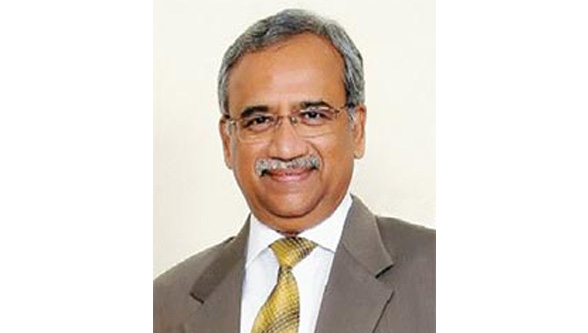Technology approach to water management for Smart Cities
Water is essential for life but is finite and therefore precious. Serving pure and potable water to the dense populations in proposed Smart Cities in India, is a challenging task.
Ashok Natarajan is a Bachelor of Engineering and a Post-graduate in Management. He specializes in water management and has been involved with Indian electric and water utilities for the past 35 years. His company Tamilnadu Water Investment Company Limited (TWIC) is a joint venture between the Government of Tamil Nadu and Infrastructure Leasing & Financial Limited (IL&FS). TWIC has been in the forefront of a number of initiatives both in the urban water sector as well as treatment and management.
Water is essential for life but is finite and therefore precious. Serving pure and potable water to the dense populations in proposed Smart Cities in India is a challenging task. By now it is widely accepted in India that 24×7 (continuous) supply is the preferred way forward for Smart Cities, with such supply being more hygienic (better water quality), more cost effective (less leakage & breakdowns, less investment by consumer) and more productive for the consumer.At present attempts towards 24×7 have brought forward a multitude of problems facing the utility; bringing the realisation that 24×7 could only happen if both the distribution network and the Utility itself underwent a transformation and the Utility deployed contemporary technologies to manage water. Current practice to address this transformation is the use of tender procedures to select an EPC to rehabilitate and subsequently operate a pilot zone, with the objective of extending a successful implementation to the remaining city. This approach is often met with an outcry from parts of the public and stakeholder organisations with arguments that are sometimes justified and sometimes not. Rehabilitation is currently the perceived way forward to transformation of the distribution network whilst Operation by a Water Operator is the perceived way forward to transformation of Utility management.
The author recently attended the conference on ‘NRW and Pipe Condition Assessment’ under invitation from Asia Water loss at Malaysia and presented a paper on Challenges in going in for 24×7 water supply in India. The paper was well received and helped the CEO to interact with Utilities having best practices in Asia and was able to understand the latest technologies being deployed. The two day conference concluded with a one day practical NRW workshop on Pipeline Condition Assessment.
The NRW management includes the following and some of these technologies are being piloted in TN by Tamil Nadu Water Investment Company:
- Strategy development
- GIS and Network Modelling
- NRW Monitoring system and control room
- DMZ establishment
- Installation works
- Network Operations & Management
- Customer service & Operations Centre
- Leakage detection and repairs
- Flow balancing and Pressure Management
- Asset Maintenance – Pipe condition assessment , CCTV assessment
- Latest software vendors, NRW service providers, equipment , accessories and meter manufacturers
New Technologies and Application that can be used in India for Smart Cities:
- Understanding when a water or sewerage pipe is expected to fail has become very popular especially in Singapore and other Asian countries due to high cost of rehabilitation. New technology was demonstrated on how to manage risks from traditional approach in replacing pipes to understanding and addressing by simple sounding technology and fitting decay curve of pipes.
- Smart Ball leak detection technology has been used in Malaysia and Manila wherein a smart ball is inserted and travels with water flow for 12 hours and collects information and this can detect even pinhole leaks. An Asset management tool which has been deployed in South Africa whose system was very similar to India earlier and now everything is running on continuous water system
- A new devise for pipe scan technology has been successfully deployed in Asia whereby inserting a fibre optic cable with scanner, complete analysis of pipework, wall thickness of pipes and location of vulnerability can be zeroed including joint condition of pipes
This paper looks at suggested practices by deployment of technologies available for efficient water management for proposed Smart Cities that are essential for effective water management, with the intention that some of these measures be introduced in current practices to limit risks and provide more options to the Utility about future operation for Smart Cities.



